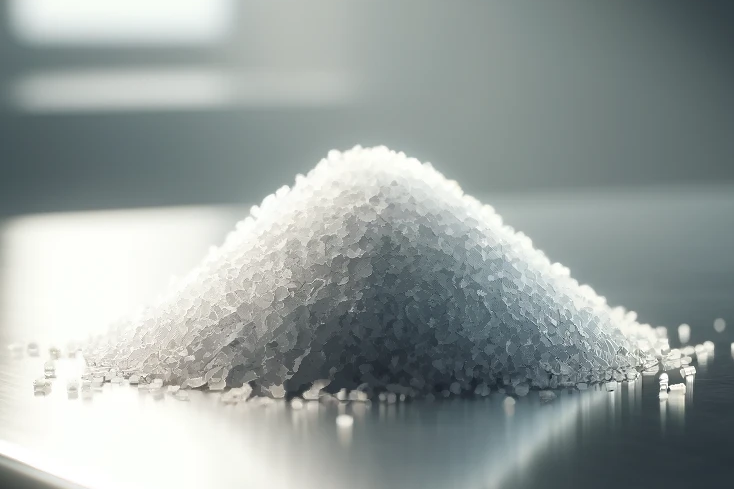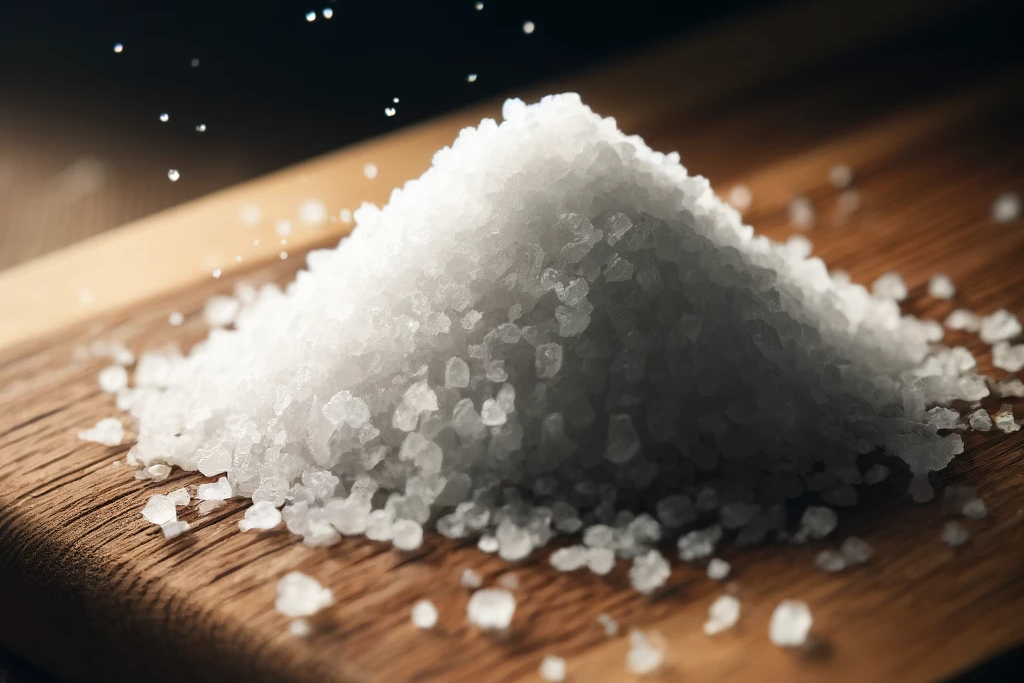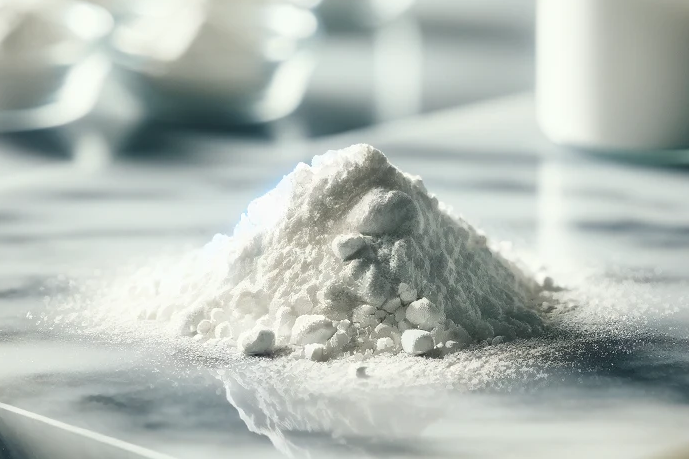Calcium propionate

Calcium propionate is a preservative that is used in many industrially produced foods and animal feeds. It is intended to prevent the growth of molds, yeasts and bacteria and thus extend shelf life. But what exactly is calcium propionate and how does it affect your dog's health? In this article, you'll find out everything you need to know about this additive.
What is calcium propionate?
Calcium propionate is a salt that is produced synthetically from propionic acid (E 280). Propionic acid is an organic acid that also occurs naturally in some foods such as cheese or sauerkraut. Calcium propionate is approved as a food additive under the number E 282 and is mainly used in packaged bread, baked goods, cheese and animal feed. It has a slightly acidic taste and is soluble in water.
What are the advantages of calcium propionate?
Calcium propionate has the advantage that it increases the shelf life of food and animal feed by inhibiting the growth of microorganisms. This can improve the quality and safety of products and reduce food waste. Calcium propionate can also serve as a source of calcium for the body, as it breaks down into propionic acid and calcium in the stomach. Calcium is an important mineral for bones, teeth, muscles and nerves.
What are the disadvantages of calcium propionate?
Calcium propionate also has some potential disadvantages that you should be aware of. Firstly, it can lead to allergic reactions or intolerances in sensitive people or animals. Symptoms can include skin rashes, itching, breathing difficulties or gastrointestinal complaints. On the other hand, excessive consumption of calcium propionate can lead to an oversupply of calcium, which can disrupt the balance with other minerals such as magnesium or phosphorus. This can lead to kidney stones, cardiac arrhythmia or calcification.
How much calcium propionate is allowed in dog food?
There is no legal maximum amount for calcium propionate in dog food. However, it may only be used in feed that is approved for all animal species or categories. This means that it may not be included in special diets or supplementary feeds. It must also be indicated on the list of ingredients of the feed.
Calcium propionate is a preservative that is found in many industrially produced foods and animal feeds. It has the advantage that it increases the shelf life of products and can serve as a source of calcium. However, it also has potential disadvantages, such as allergic reactions or an oversupply of calcium. Whether calcium propionate in dog food is harmful depends on the amount, frequency and individual tolerance.
If you notice any signs of hypersensitivity or poisoning in your dog, you should see your vet immediately. We are not a substitute for a vet, but we try to be as accurate as possible. Every dog reacts differently and we recommend you get a second opinion or consult your vet if in doubt.
Stay healthy and take good care of your four-legged friend!😊
Similar to Calcium propionate
Sodium propionate is the sodium salt of propionic acid, a natural organic acid found in some foods and also in the metabolism of higher organisms. Approved as E 281 in the food industry, it is...
Potassium propionate is the potassium salt of propionic acid, a naturally occurring fatty acid found in some foods and in the bodies of mammals as a metabolic product. It is valued in the food...
Calcium acetate is a chemical compound of calcium and acetic acid with the molecular formula Ca(CH3COO)2. It is a white, odorless powder that is soluble in water. Calcium acetate is used as a food...
Potassium sorbate is the potassium salt of sorbic acid, a natural organic acid found in some fruits such as berries. Potassium sorbate has an antimicrobial effect, i.e. it inhibits the growth of...



